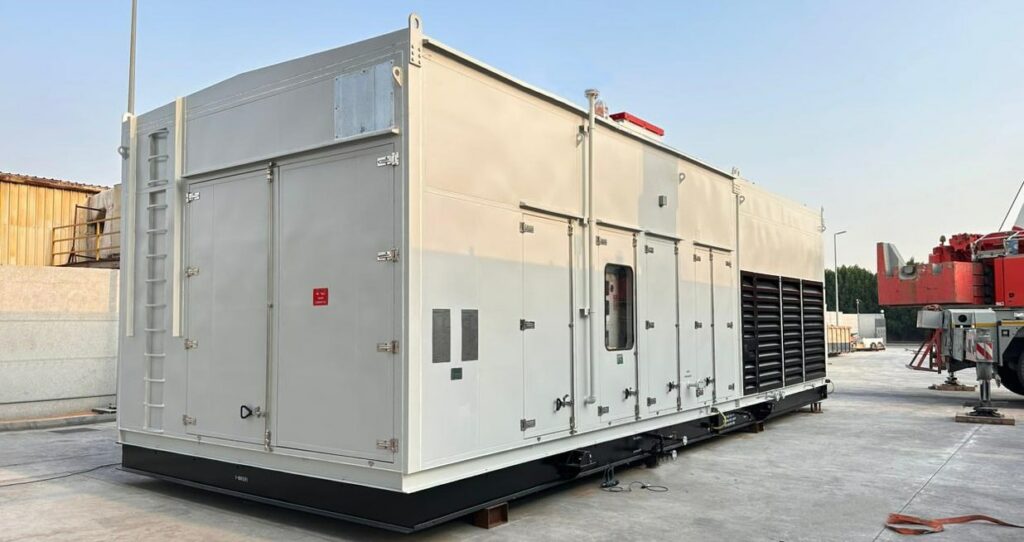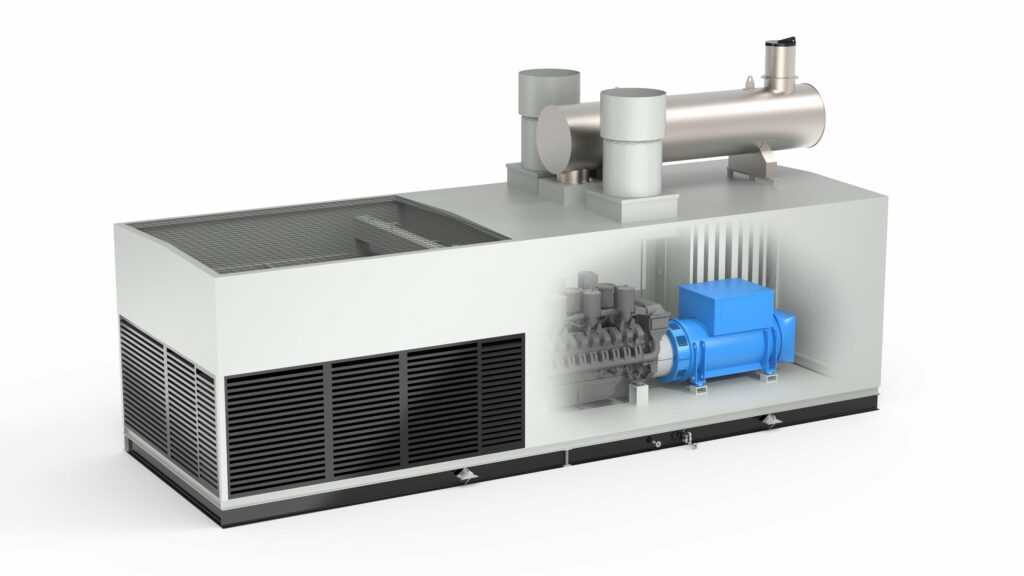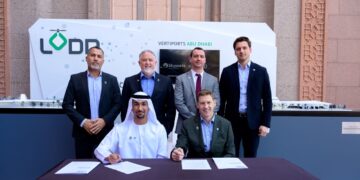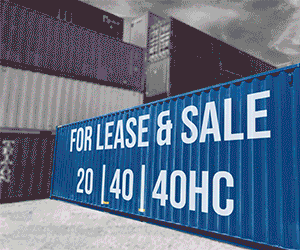Located on the Red Sea coast of Saudi Arabia, Yanbu is the nerve centre of the Kingdom’s petrochemicals industry.

One of Yanbu’s critical installations is the power station, which has several Gas Turbine Generators (GTGs) with a total capacity of 524.6MW. The power station caters to the region’s total electricity demand. In case of any unexpected shutdown, the GTGs are restarted by DG sets designed specifically for Black Start applications. The DG sets are supplied by Saudi Diesel Equipment Co. Ltd., a well-known local manufacturer and supplier to the oil and gas industry since 1978s. These are supplied to replace a 35 years-old existing DG sets based on detailed assessment by the company responsible for the maintenance of the power station. Entrusted with the task, Saudi Diesel opted for alternators from Nidec Leroy-Somer, its trusted supplier.
The GTGs are equipped with DOL starter motors of 600kW, 4.16kV rating, and the starting current is very high– 6-times the nominal current – which means there is a huge inrush current experienced by the alternator. Given the critical nature of the project, the company ordered two DG sets for redundancy, and thereby, reliability. The DG set first acts as a Black Start, and is primarily responsible to start the turbines that are down or under planned maintenance shutdown. The DG set is also used to feed auxiliary loads in case the need arises – emergency loads other than the turbine load – before or after the Black Start, till such time the turbines take over the full load. For Nidec Leroy-Somer, the challenge was to design a medium voltage 4.16kV alternator with rated power of 4000kVA. This is a high speed alternator, IP23 rated, so there were some constraints regarding the design of the machine. An important consideration was adapting the design to the ambient temperature of 50°C with the humidity reaching 100% in consideration of the very harsh environment at the site.

Nidec Leroy-Somer also used the latest D550 digital AVR, which is ideal for parallel genset operation. The AVR also has a wide range of functionalities including online monitoring with manual and remote controls. The two alternators were designed and manufactured after thorough calculation of all electrical parameters following detailed discussions with the client before finalizing the design. Once assembled, the alternators were tested and approved by Saudi Diesel along with third party inspectors, a prerequisite for any machine exported to Saudi Arabia.
“Any application that involves a power plant is very critical, because in case of a shutdown, the unit has to restart and come online as fast as possible, and these are very heavy turbines, each of 50MW. Also they must run to a synchronous speed before energising the equipment and connecting to the grid. That is the critical part – getting the GTGs into a synchronous speed before connecting to the grid,” says Nawar Shubber, Regional Sales Manager at Nidec Leroy-Somer.
The two DG sets were supplied as complete packaged units, each measuring 13mtr (L) x 5mtr (W) x 6 mtr (H) in dimensions. The diesel engine is from MTU, Germany. Each package is a complete unit with the Engine coupled to the Alternator, Diesel Tank, MV Switchgear, 480V Motor Control Center (MCC), Control Panel, Fire Alarm and Suppression System and the Radiator Cooling System. Two axial up-blast fans have been installed for ventilation purpose during operation to maintain the temperature rise inside the enclosure within 5-degC. The ingress protection rating during standby time for the whole package is IP56. The packaged are based on plug- n-play concept – easy to install, easy to run, and easy to maintain.
“Enclosures for the entire generator set, fabricated locally, contain UL-motorized louvers for totally enclosed operation during shut-down. The package is designed as a gas-tight enclosure while the fire alarm and suppression systems in these units are tested in accordance with NFPA 2001 and BS EN 15004-1,” says Kathim Alrifai, Project Manager at Saudi Diesel Equipment Company.
Apart from the harsh environment, the project is also located within a high seismic zone. The generators are mounted on dual spring and rubber vibration isolators designed to withstand earthquakes and seismic activity within specific limits, as determined by the data applicable to the city.










